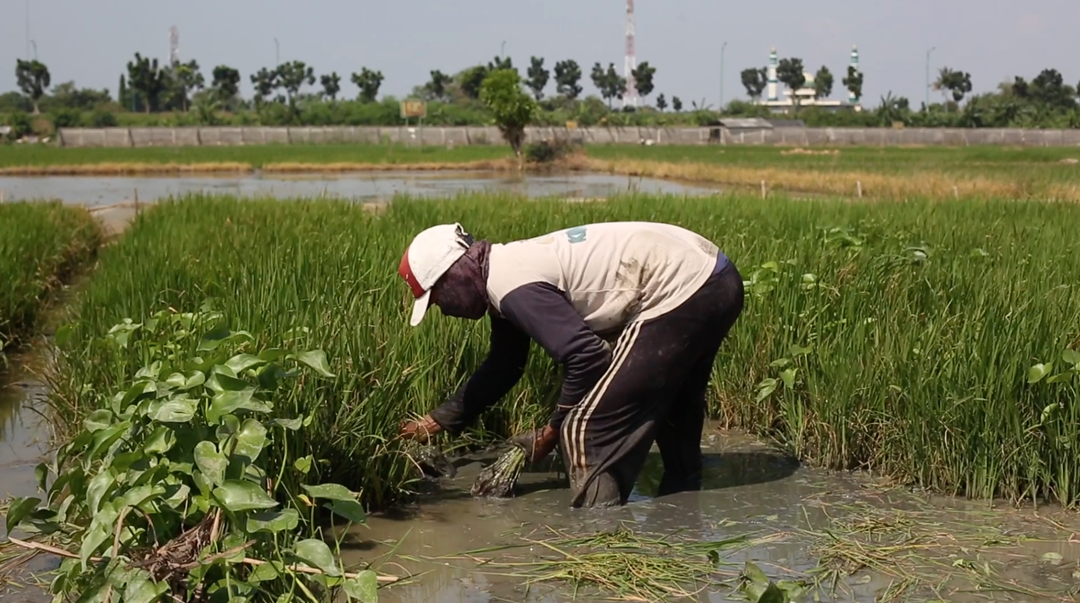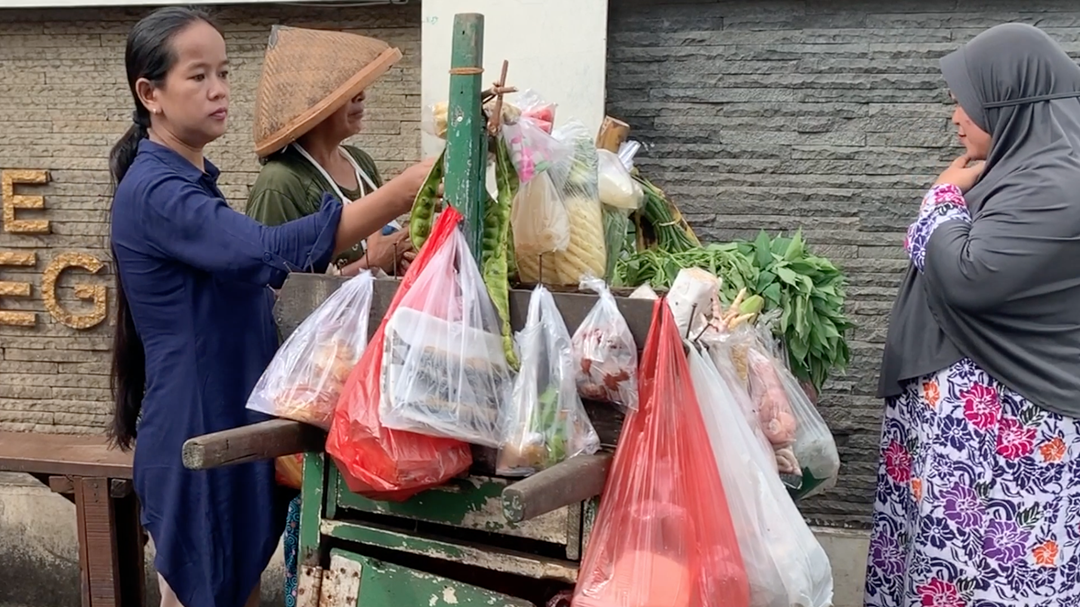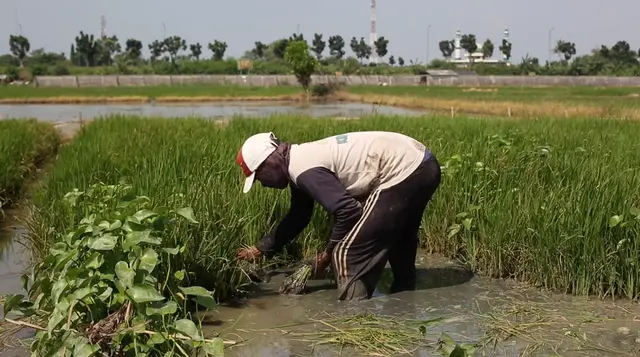
Nadiabe is finding it difficult to reap the benefits of his harvest season due to COVID-19 restrictions. /CGTN
Nadiabe has been a farmer for decades. It's a profession that was passed down through the generation from his great grandfather. His livelihood depends on his farming work and lately it's been difficult to reap the benefits of the harvest season.
Nadiabe usually plants rice, a staple food in Indonesia. But it's been months since he was able to make a steady income. The unpredictable weather and heavy impact of COVID-19 in Indonesia has forced him to change many of his normal harvest plans.
"My family is heavily affected. Usually, I have more than enough for my family from my daily income. But now, I make only three U.S. dollars per day. We are also in the middle of Ramadan, our expenses are high and we have to save more," says Nadiabe.
Indonesia's coronavirus cases continue to increase by the day. As a result, the government has imposed strict guidelines that aim to limit movement in order to contain the virus. Those regulations are indirectly affecting millions of farmers across the provinces.
Many of them rely on smooth logistics and transportation to distribute their goods to markets across the nation. However, the government's bans have resulted in few vehicles traveling back and forth, making it even harder to sell their products.

Prices of basic commodities have risen exponentially as the Indonesian government is forced to import ingredients like garlic and beef. /CGTN
Muhammad Firdaus, an advisor for the World Trade Organisation, says government support is crucial during these times to maintain food security across the country.
"For small farmers, they must produce every week to generate income. But sometimes they run into logistical problems in some areas. So, right now we need to guarantee that there would be no issues in logistics and transportation and ensure smooth flow between farmers and markets," says Firdaus.
The erratic weather pattern and a prolonged dry season are also expected to impact the overall output of Indonesia's agriculture sector, which employs at least 30 percent of the country's population.
"The dry season usually comes in full force after June in Thailand, Vietnam and Indonesia. So, we must plant as soon as possible. The government must guarantee the availability of seeds and fertilizers for the farmers," says Firdaus.
The Indonesian government is working to create a plan to support 2.7 million farmers by providing those essentials, along with 20 U.S. dollars in cash. The global pandemic has disrupted the food supply chain within the country, forcing millions of people to deal with the drastic changes all the way from production to consumption.
Prices of basic commodities have also skyrocketed forcing the Indonesian government to import ingredients like garlic and beef. Experts say it's crucial to have enough stock especially over the coming weeks as Indonesia begins to celebrate Eid, where demand will be at its peak.
 简体中文
简体中文

